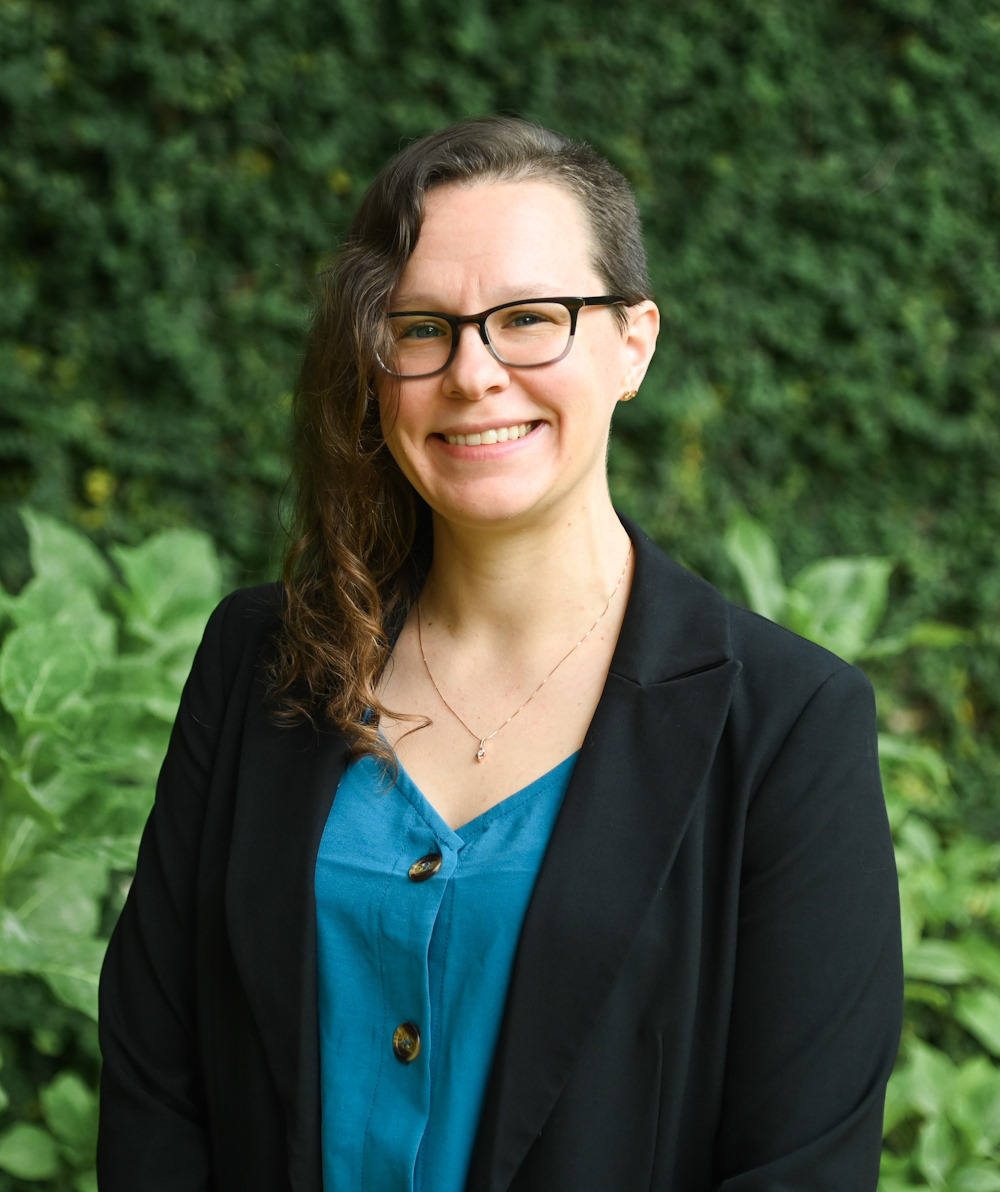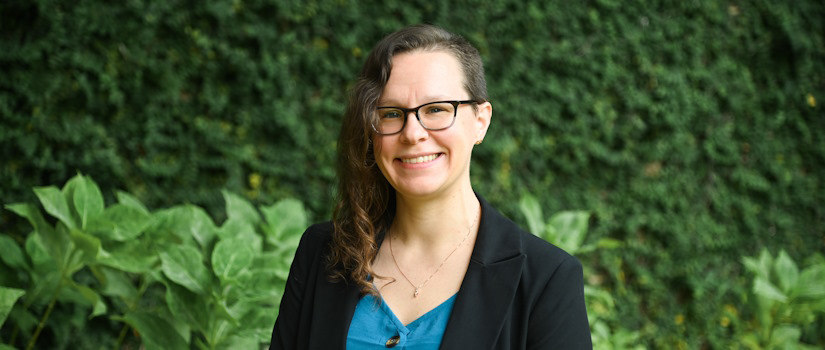October 9, 2024 | Erin Bluvas, bluvase@sc.edu
Lauren Fowler fights mental health inequities. The applied social psychologist examines how our social and cultural environments shape our health and health behaviors – ultimately driving health inequities in marginalized communities and groups.
This fall, Fowler joined USC’s FIRST FIIRRE program as an assistant professor in the Arnold School’s Department of Health Promotion, Education, and Behavior (HPEB). In her work, she uses transdisciplinary, mixed methods to look at how multi-level health determinants (i.e., psychological, social, structural, cultural, and health systems factors) contribute to mental health inequities.
“I am passionate about building equity-centered approaches into my work to inform size-inclusive, health-promoting practices, policies, and environments, with special attention to the ways that our environments or practices create barriers to health for folks with historically marginalized identities and/or disabilities,” she says.
Though there have been some twists and turns, Fowler has been on this path since she was a bachelor’s student at Eastern Michigan University. The mathematics and psychology double major got her first taste of research when she joined a lab and even received her own funding.
“Getting involved in research as an undergrad was transformative,” Fowler says. “I was fascinated at the ways in which our experiences, beliefs, values and interpretations of the world influence our health both directly, such as through our physiology, and indirectly as with behaviors.”
Hooked on research and its ability to untangle the driving factors of health outcomes for vulnerable groups, Fowler enrolled in graduate school at George Washington University – completing both master’s and doctoral degrees in applied social psychology. She then spent three years as a postdoctoral research fellow as part of a T32 Training Program in obesity and cardiovascular disease at the Washington University School of Medicine in St. Louis.

“During my graduate and post-doctoral programs, I started paying more attention to the ways that societal and structural factors, like the neighborhood you grow up in, your access to health care or health insurance, your family's access to education or affordable fresh food, or the experiences and opportunities you have in society based on your race, ethnicity, gender identity, body size, sexual orientation, or income can determine your health,” Fowler says. “I became interested in understanding how these kinds of social determinants of health, societal norms, and structural factors intersect with our psychosocial and behavioral processes to determine health outcomes.”
She stayed at Washington University as a psychiatry instructor before joining the institution’s Sexuality, Health and Gender Center as a research assistant professor. During this time, Fowler became involved in several projects that refined her research agenda even more.
As a co-investigator on studies funded by the National Institutes of Health, Centers for Disease Control and Prevention, and Klingenstein Third Generation Foundation, she contributes to research related to chronic disease, physical activity, nutrition and eating disorders – all using a health equity lens. Fowler is also the principal investigator on a K01 award from by the National Institute of Minority Health and Health Disparities that looks at weight stigma and minority stress among sexual minority women, including messaging and societal norms surrounding body weight and size.
These days, the underlying themes of her work include weight-related discrimination and intersectional stigma among individuals of diverse sizes who identify as 2SLGBTQIA+; body image among 2SLGBTQIA+ youth; and the use of technology (i.e., mHealth, AI and rule-based chatbots) to increase access to evidence-based care for disordered eating prevention. Two of her forthcoming projects involve developing chatbots to increase access to mental health care among adolescents and adults with a focus on disordered eating and comorbid anxiety and depression.
“I’ve recently started to focus on how weight stigma intersects with other forms of stigma (e.g., racism, classism, ableism) at the structural, interpersonal, and intrapersonal levels, particularly for people with multiple marginalized social identities such as Black Indigenous People of Color (BIPOC) and sexual and gender minorities (or 2SLGBTQIA+) adolescents and adults,” she says. “In addition, my work has shifted from a weight-centric paradigm into a weight-inclusive paradigm.”
“We are incredibly excited to welcome Dr. Fowler to the HPEB family,” says interim associate chair Andrew Kaczynski. “She has a diverse and impressive educational and professional background and brings a variety of innovative methods to her teaching and scholarship. Her research on healthy equity and social and structural determinants of health is much needed, and she will be well-supported by the FIRST FIIRRE program here at USC.”
Fowler is looking forward to collaborating with colleagues in the HPEB department and across the Arnold School and university as well as the surrounding communities. She’s also excited to work with students both in the classroom and as part of her research projects.
“The Arnold School has incredible graduate and undergraduate students that I can't wait to work with,” Fowler says. “I am especially excited to share my passion for research with students and trainees, and to find ways to support their development as leaders of the next generation. I'm actively looking for more students to get involved in my work and hope students who are interested in any of these topics might reach out to find out more.”
